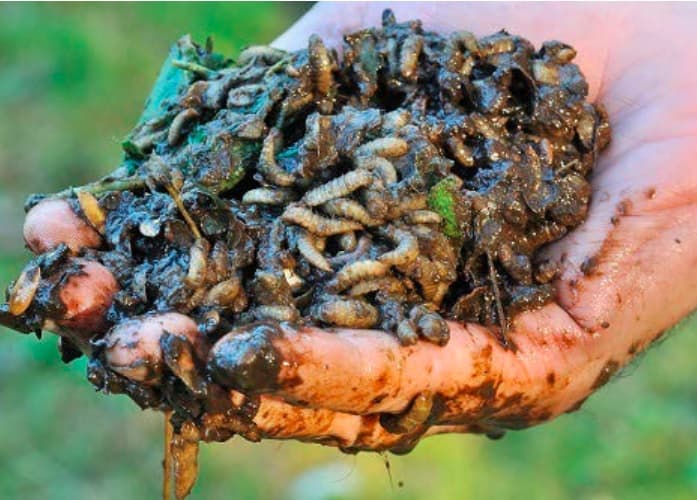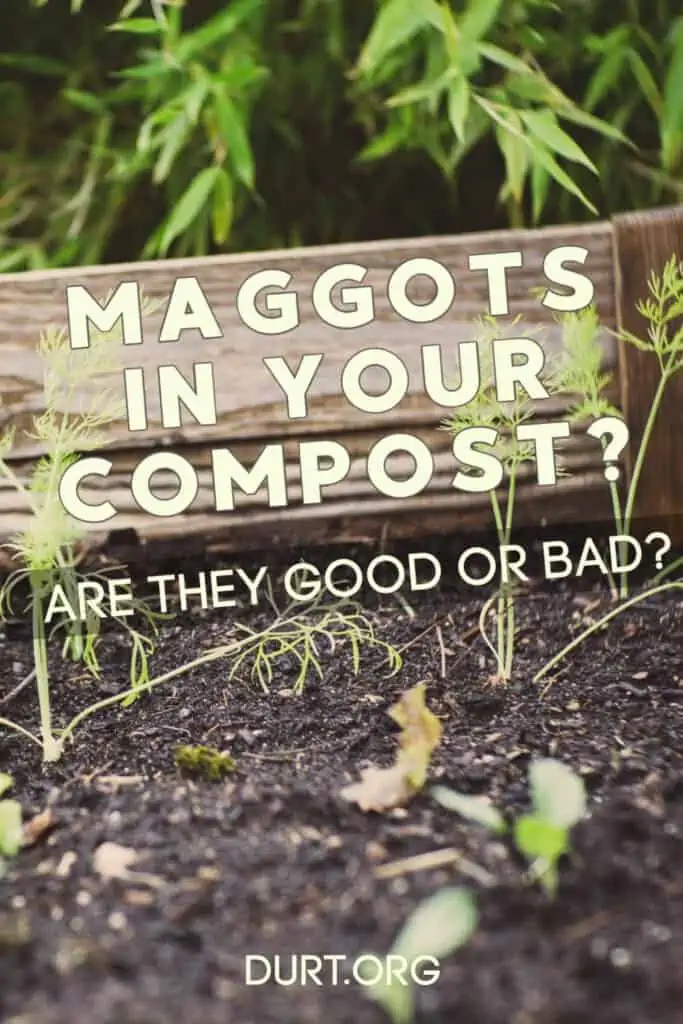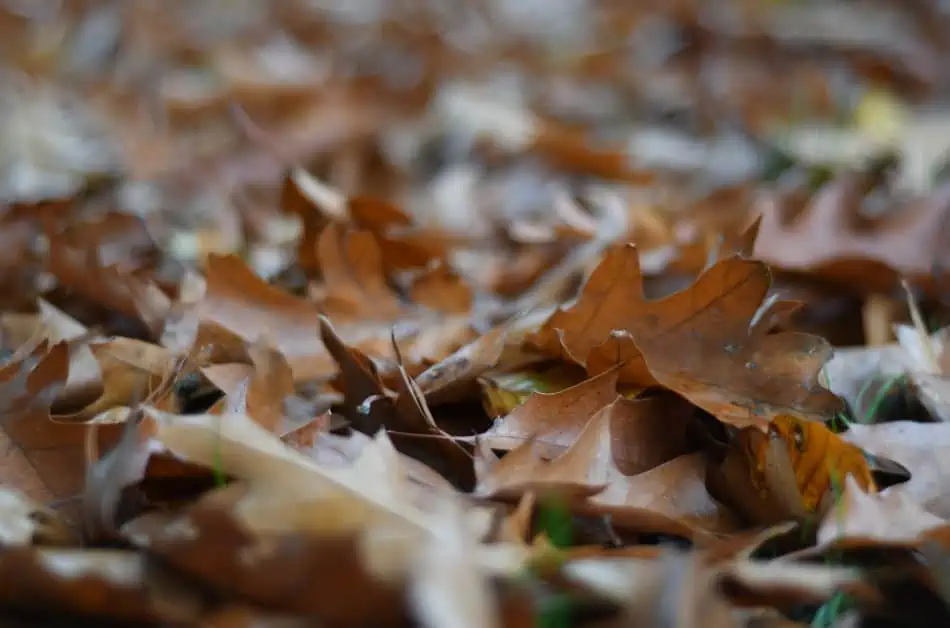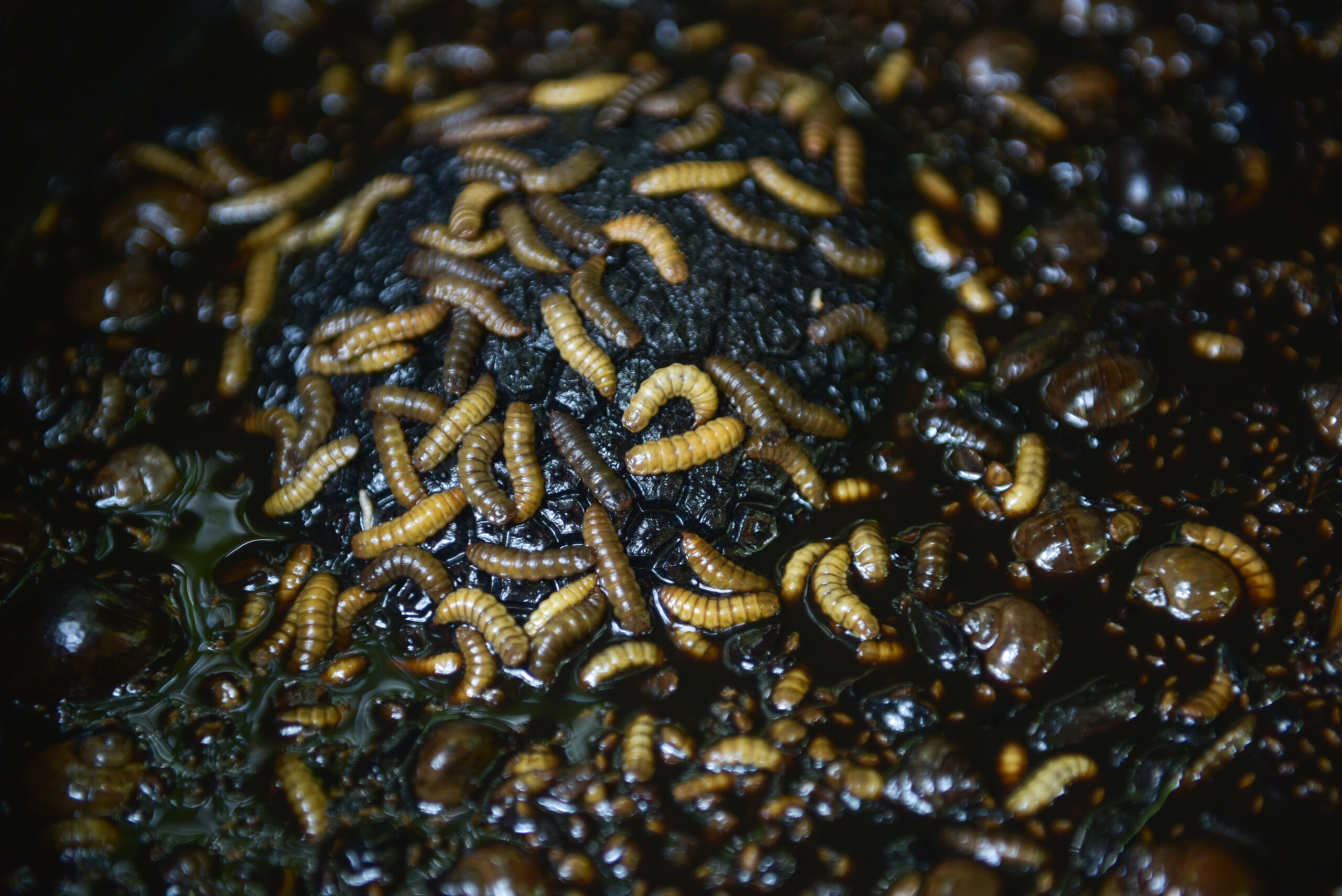As an Amazon Associate I earn from qualifying purchases.
Maggots are disgusting. They exist in the filthiest places, feast on dead and rotting flesh (mostly corpses of course), and carry disease and death everywhere they go. At least that’s the view that every city-dwelling American seems to have.
In many cultures maggots are far from something to be disgusted by. In fact, many places have survived on maggots and similar grubs for thousands of years. As a food production source, maggots are unparalled. In a single year, an acre of maggots can turn a pile of garbage into more protein that you can get from 3000 acres of cattle!
And it doesn’t end there.
Nutrition and survival experts say that, faced with a diet of only lean meat, you would be better off to let the meat spoil and eat the maggots off of it as they would provide a good amount of protein and fat.
However, if you’re here because your compost pile is teaming with maggots you’re probably not looking at them as a food source. You might not even be disgusted by them. You just want to know if they’re beneficial for your compost pile/tumbler and, if they’re not, what they heck do you do about them?
In moderation, maggots are actually beneficial to your compost pile. They accelerate decomposition and are much more effective than microorganisms at dealing with large pieces of waste. If they get too numerous you can get rid of them by drying out your pile slightly (adding browns) or sprinkling some organic garden lime powder over your pile.
However, as you would expect, the answer is a bit more nuanced than that. So if you’re just here to put your fears to rest, relax. Some maggots in your compost are fine. However, if you want to fine-tune your pile, let’s dive deep.
Why are there maggots in your compost?
Most flies began life as small squishy maggots/grubs. The eggs are often laid by the parent on a food source because not only can the offspring not fly for a while (like a couple of weeks to a month) but they aren’t very good at getting around at all. Being laid on a food source allows them to get their calories in and grown without any trouble.
If you don’t compost much yet, you’re probably envisioning the white squishy maggots that you’ve seen on rotting food, dead animals, etc. The maggots we’re talking about here are predominantly from the black soldier fly. A much larger and hungrier maggot than your standard house fly. And no, they don’t actually look anything like the mealworms in the above picture. I just didn’t want to scare anyone off with an actual picture of them. Check it out:

The number of maggots on gross and smelly food is more of a coincidence than anything. Maggots are likely to be laid of food sources that are left out (rotten food), food with a strong smell (rotten food), or food that is easy to digest (rotten food, because they don’t have mouths).
Flies are attracted to the rotting organic matter (mostly food scraps) in your pile and lay their eggs there. There is really nothing surprising or remarkable about it. Flies do what flies do and maggots eat garbage. However, black soldier flies don’t usually lay eggs on anything like food so you probably haven’t seen them before.
That being said, if your pile is teeming with maggots and has started to resemble a conservatory more than a compost pile then it is problem an indicator of a bigger problem. Maggot presence explodes if your pile has too many “greens” or if your pile is too wet. Keeping a more balanced pile will often solve any maggot issues you might have.
The benefits of having maggots in your compost

Maggots are absolutely voracious. A maggot in top form can consume more than twice its body weight each day! And that’s not compost consumed for good. That is compost that is processed and broken down. Having a modest colony of maggots in your compost pile means that your pile will be extremely efficient…at least at breaking down food waste and other “greens.”
When it comes down to it, the increased capacity and production of your compost pile is the only reason to allow maggots (or any type of creepy crawlies) in it. If you don’t care about composting faster (or have very limited food waste) then you don’t need maggots.
On the other side of the fence, there are two common (and semi-valid) reasons that people don’t want maggots in their compost. First, they fear that the maggots with crawl off and eat their plants or burrow down and start eating roots. Black Solider Fly larvae do neither of those things. They are interested only in garbage and death.
The last concern is that maggots consume biomass. This one is absolutely true. If you have a huge number of maggots, you are going to be losing out on some of your material to them. In my case, it’s worth it. You’ll have to decide for yourself if it’s worth losing a couple of percent of your bin’s mass to speed up the process!
If you have too many maggots playing in your compost pile, have no fear. Controlling the population and preventing maggots in the future is fairly straightforward and simple. As an added bonus, all the control methods are temporary so if you want to slow your pile down, for the time being, you can easily bring back the maggot horde in the future!
4 Ways To Get Rid Of Maggots In Your Compost
- Employ Mesh. If you use a tumbler or enclosed bin, covering any holes with mesh will keep out flies and reduce/eliminate the maggot population. Be sure to use a mesh fine enough that flies cannot get in but breathable enough that you compost can still get the air that it needs.
- Dry out your pile (add browns). An overly wet pile of compost that’s nitrogen-rich is a maggot’s idea of a feast. Increasing the amount of carbon-rich “browns” in your pile will both dry out your compost and reduce the prevalence of food that maggots want to eat.

- Reduce the amount of food waste. Maggots love kitchen waste. Less food=fewer maggots.
- Sprinkly your pile with lime. If all else fails, sprinkling some garden lime over your pile will change the pH and discourage flies from laying their eggs on it. Just be aware that if you overdo it your plants might not like the new pH of your finished compost.
In my own compost (I mostly use a tumbler) adding more dry leaves was enough to balance out my pile and deal with the maggot situation. I feel like they are a valuable contribution to my pile, but I don’t need them to eat everything there is!
Conclusion
Unless they disgust you, leave the maggots in your pile be. There is very little difference between worm castings and maggot casting so just let them chomp their way through your kitchen waste and enjoy the benefits: more compost!
Other Articles You’ll Enjoy
Can You Compost Oats? (A Guide to Oatmeal and Oat Products)
At A GlanceYes, you can compost oats and oatmeal as they are organic materials that…
Can You Compost Oil? (Yes, but only a little…)
At A GlanceIt’s not recommended to compost oil as it can cause several issues in…
Composting Nectarine Pits – What You Need to Know
At A GlanceComposting nectarine pits can be a bit challenging due to their hard and…
Composting Newspaper with Color Ink – What You Need to Know
At A GlanceYes, you can compost newspaper with color ink, but it’s preferable if the…
Can You Compost Noodles? A Starchy Foods Composting Guide
At A GlanceYes, you can compost noodles as they are a biodegradable organic matter. Whether…
Can You Compost Nut Shells? (Yes…but probably don’t…)
At A GlanceYes, you can compost nut shells, but there are certain considerations to be…

